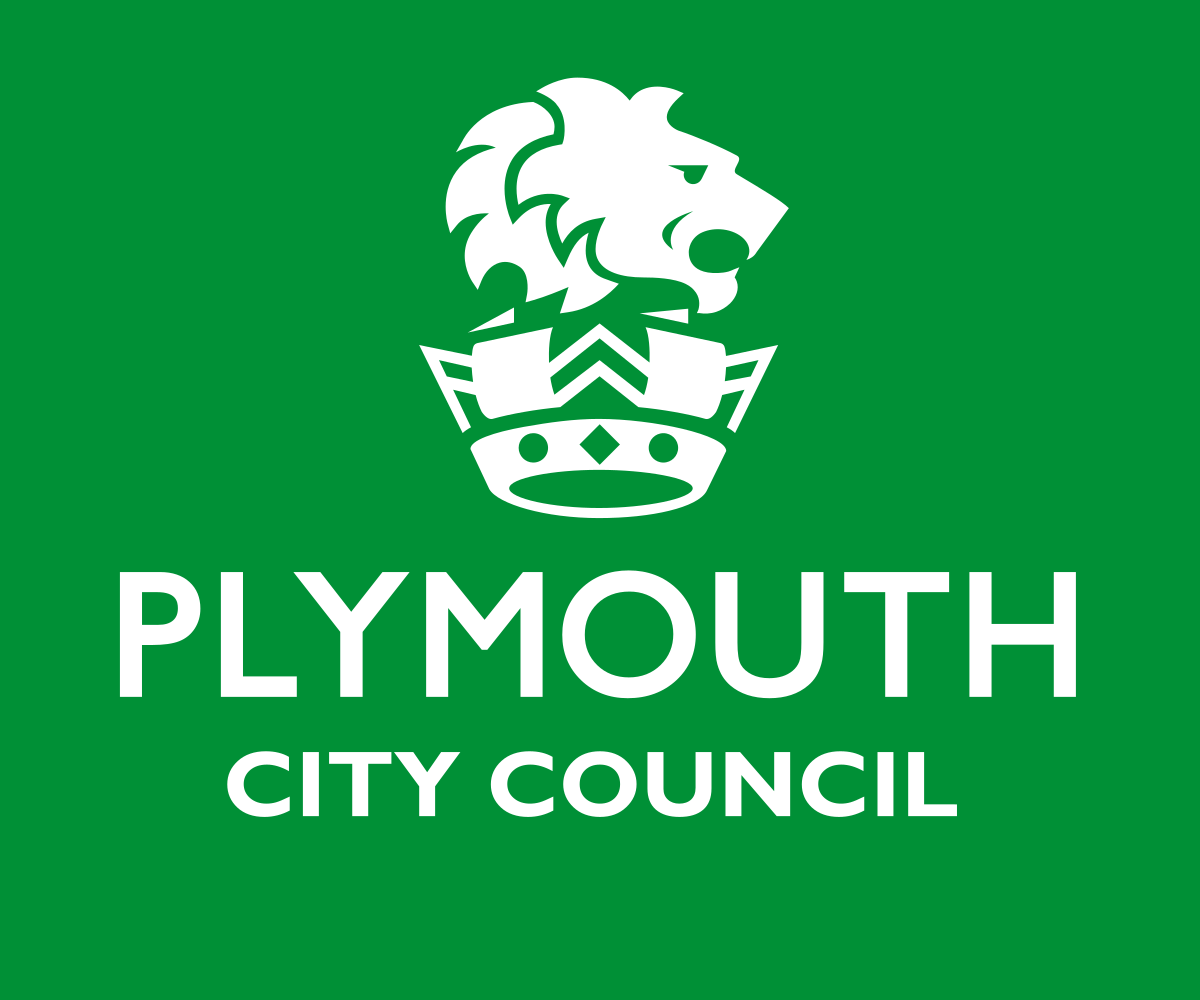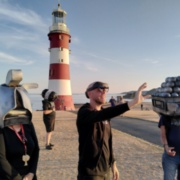Plymouth Parks: Buzzing with innovation!
Plymouth City Council has been trialling new nature-based solutions with very impressive results. Jemma Sharman, Green Minds Programme Manager, and Emmie Readman, Engagement and Campaigns Officer, provide an overview of this bold - and APSE Parks Innovation Award winning - approach.
Often, the challenges that we face present us with opportunities to think differently, to grow, and to innovate. We all know that locally, nationally, and globally, we face climate and biodiversity challenges which require new solutions; nature-based solutions which support nature recovery. At the heart of these solutions are people: People determine the success and sustainability of any initiative which is taken.
With this in mind, Plymouth City Council (PCC) has been trialling new nature-based solutions across the city, actively engaging residents, stakeholders, and staff in these changes. One of these changes is in our grassland management across Plymouth, to support nature recovery. We brought together a partnership with environmental and social charities, and education and cultural sectors, which enabled us to co-design and deliver creative digital technology interventions with communities. These interventions were to support pro-environmental attitude and behaviour change.
Where were we starting from? Before 2020, 85% of the 700 hectares of PCC grassland was managed as amenity grassland, mown every four weeks. Partnership work with Devon Wildlife Trust (DWT) helped us to develop a strategy to improve our spaces for wildlife in line with the Council’s strategic aspirations in our Climate Emergency Action Plan. As a result, changes to our grassland management to support more wildlife were prioritised as a key objective.
However, to support the management changes a key challenge was to change public, stakeholder, and workforce perception of greenspaces from ‘neat and tidy’ to accepting their value as wildlife habitats. Alongside our programme of grass cutting changes, we worked as part of Green Minds partnership (led by PCC, funded by European Regional Development, Urban Innovative Actions Initiative). This work focused on co-designing and delivering a creative digital tech and marketing campaign. Working with local artists, environmentalists, educators, and residents to help change attitudes and support pro-environmental behaviours, alongside our programme of grass cutting reduction. Using a ‘See, Think, Do, Care’ framework the interventions aimed to move people on a journey from seeing/noticing social media and online content, to understanding more about the natural world and our land management, through to taking action for wildlife and caring for local parks/greens.
So, how did we do it?
First of all, we needed to understand our audiences: who do we talk with and how? Given that we wanted to engage with a broad range of people: from decision makers to school children, businesses to the general public, our approach needed to consider how people engage with us, and if they don’t, how can we reach them. Here are some of the initiatives we have implemented:-
- Easier, clearer access to information: Changing the Plymouth City Council website to support public understanding of our changed approached, incorporating a Google Map to show grass cutting schedules. This was featured in The Guardian as an example of best practice. This has changed from a ‘report an issue/complaint’ approach to proactively providing information on grass cutting schedules and how we are supporting urban wildlife. This work was carried out in partnership with the Future Parks Accelerator Team: www.plymouth.gov.uk/how-we-manage-our-grass
- Knowledge sharing workshops with Street Services and Devon Wildlife Trust, to show how important the work on the ground is from a biodiversity perspective, to explain the changes in approach to grassland management, and to equip them with answers if and when members of the public ask them about the changes.
- Social media campaigns – including getting involved in The Wildlife Trusts’ 30 Days Wild (June 2022), and our Wildflowers in Plymouth films, where the Grass Cutting Team Leader in our Street Services team explains the value of wildflowers people may see every day in their local areas: https://youtu.be/nL6ZpSFr1u4
- Seeds for Schools – working with a local social enterprise, Pollenize, to provide each of the 36,000 school children in Plymouth with a packet of wildflower seeds. Followed by the opportunity to get involved with an interactive digital pollinator experience at Plymouth’s brand new, immersive dome, led by Real Ideas Organisation: bit.ly/SeedsForSchools
- Digital, online co-design workshops with Arts University Plymouth- AUP’s Fab Lab linked up with residents and community groups to design playful meadow signs to install on wildflower sites around the city, to promote understanding of parks management: bit.ly/WFsigns
- Workshops with local secondary school pupils and University of Plymouth to pilot digital interventions to make nature more visible, in our largest urban park. This involved installing a LOWARAN mobile network across the park with environmental sensors and trialling a chatbot installed on the park café wall, enabling people to ‘ask the park’ questions: bit.ly/GMLivingLab
- Augmented reality creative commission – working with Arts University Plymouth, ‘Ashnilation’ reached new audiences through cutting edge Microsoft Hololens digital technology, promoting engagement and learning around insects and wider wildlife habitat: bit.ly/Ashnihilation
- Take Action for Wildlife – ‘how to’ online resources and webinars for landowners, professional, families, and schools: bit.ly/webinarsGM
- Large scale public arts events – including a ‘Rewilded’ building installation at Plymouth’s 2021 Illuminate festival, organised by Real Ideas Organisation to engage people in the concept of nature recovery bit.ly/GMIlluminate
What has been achieved so far?
Social media highlights include June wildflower films with 25,143 views with 79% of comments being positive/more information about increasing urban meadows.
110 new people have actively engaged in Plymouth’s new Rewilding Network and 362 people have participated in online Take Action for Wildlife webinars.
36,000 seed packets have been planted with local primary schools as well as an increase in biodiversity, and therefore increased opportunity for residents to connect with nature.
The Council has reduced operational costs and increased operational capacity; reducing fuel use by 33%.
Street Services staff have been referring to themselves as ‘habitat managers’, and have reported a greater awareness of wildlife. This has also culminated in stronger, long-term partnerships between community groups, wildlife charities, and our operational staff.
There is now widespread support for grass cutting reduction in 1310 sites, enabling meadow habitat to flourish. This new approach has been embedded as business as usual, with 40% of PCC’s grassland now managed for wildlife.
We are also monitoring nature connection through a biannual citywide survey using the Nature Connectedness Index helping us evaluate change and inform future marketing campaigns.
We are proud to have won the APSE Parks Innovation Award 2022. The Award recognises the broad range of work across Plymouth City Council teams and our delivery partners, all of whom we would like to thank and congratulate. We are already looking at ways that we can develop this learning and take it forward into innovative, collaborative future projects.
Emmie Readman and Zoe Sydenham delivered a presentation on Plymouth’s Green Minds Partnership at the APSE Refuse, Recycling, Streetscene, Grounds and Parks Seminar 2022. The presentation is available to download here.



.png)



.png)